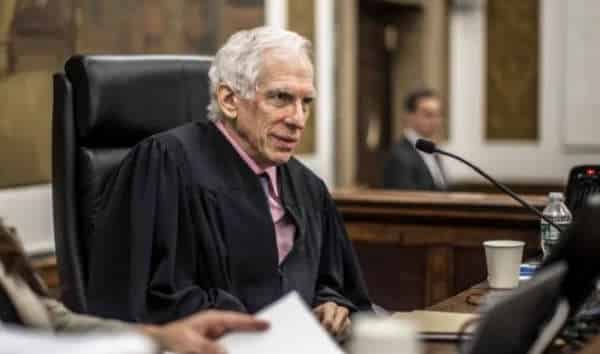Judge Engoran is expected to rule in the fraud case of Donald Trump and the Trump Organization on Friday. Donald Trump’s businesses and wealth are at serious risk.
It doesn’t matter that there are no victims since it’s a disgorgement lawsuit. The State claims the Trump Organization’s allegedly fraudulent statements cost banks $168 Million in interest. Attorney General Letitia James’s financial expert testified to this.
This isn’t a damages lawsuit. There are no victims. That is true. The State is suing Trump, victims aren’t.

In disgorgement lawsuits, the court orders defendants to give back riches obtained from ill-gotten gains. The amount to be repaid is not supposed to be punitive.
Trump allegedly overvalued assets by $2.2 billion in profits over eleven years.
The State wants Judge Engoran to bar Trump and two organization officials from doing business in New York and Eric and Donald Jr from doing business for five years. The sons’ case is built on them having nothing to do with this.
Trump’s defense is that Letitia James greatly undervalued his properties. He also blamed his accountants.
Attorney General Letitia James wants $370 million, and Judge Engoran can increase that amount.
According to Section 349. Trump’s loans were made by banks regulated by the Office of the Comptroller of the Currency. Federal banking agencies oversee bank loan portfolios through federal banking examiners. Trump’s loans met all federal guidelines. This suggests Section 349 might not apply.

Wikipedia Definition of a Disgorgement Lawsuit
Disgorgement is giving up something on demand or by legal compulsion, for example, giving up profits that were obtained illegally.
In United States regulatory law, “disgorgement” refers to a civil remedy imposed by some regulatory agencies to seize illegally obtained profits. When a private party sues for net profits, this is instead ordinarily known as restitution for unjust enrichment.
Indeed, the U.S. Supreme Court noted in Liu v. SEC (2020) that disgorgement is another term for restitution and is subject to equitable limitations. Most notably, equity does not “penalize,” so agencies cannot disgorge more than the net profits that resulted from the wrongdoing.




This judge could use a good slap!
A lot of leftists are psychopaths who get intense pleasure from causing harm to others. Leftists repeat ad nauseam they are for equality and justice but they are the most unfair, cruelly sadistically, unfair humans you could ever meet. They set free criminals who beat up police officers but throw in prison grandmas who walked into a building. Their sense… Read more »
Totally agree Canadian Friend. Thanks for your bold voice of telling it like it is.
Keep on keeping on.
Hate begets insanity